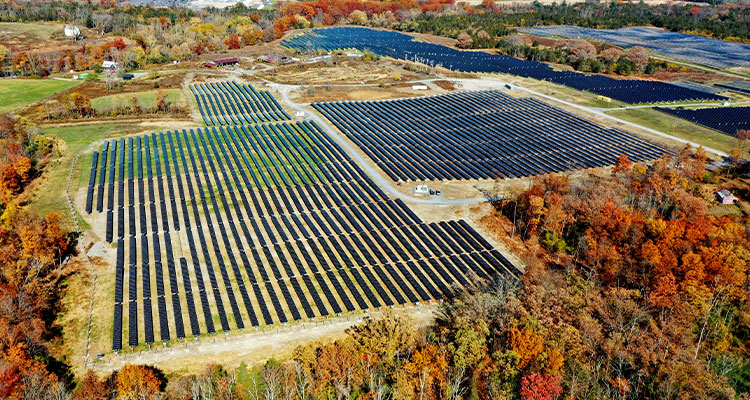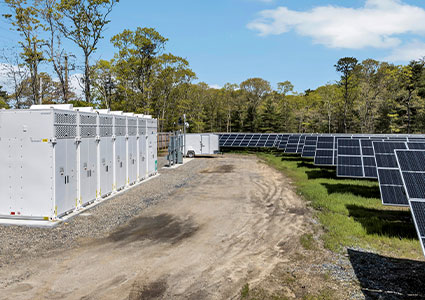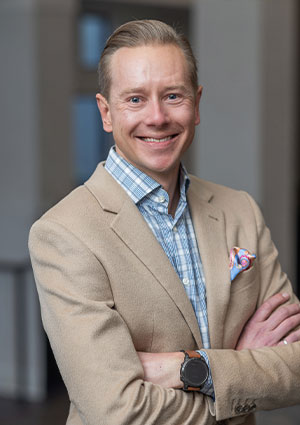
Why accessibility and sustainability are at the core of PureSky’s community solar farms
As a leading community solar developer, PureSky Energy (PureSky) builds, owns, and operates community solar farms and energy storage projects across the US, increasing accessibility to renewable energy and supporting the American clean energy transition. With a strong emphasis on long-term operations, PureSky prioritizes valuable partnerships with landowners, residents, and municipalities to generate savings and revenue where it builds renewable energy.
While a majority – by some estimates as high as 80 percent – of Americans are unable to install solar panels on their property, PureSky offers a collaborative solution. By subscribing to one of its 44 community solar farms (with 39 operational and an additional five in construction) PureSky customers receive the benefits and cost savings associated with solar panels but with no upfront costs or installation process. 
“Our mission is to provide renewable energy solutions that enhance lives and leave a legacy of environmental stewardship in close partnership with our stakeholders,” begins Jared Donald, President and CEO. “Since entering the market in 2016, we’ve grown rapidly, starting with just a few solar projects in Minnesota to our current portfolio comprising of 44 projects either in operation or under final commissioning across five states.
“In 2023, we went through a significant transition in the business. Originally known as Amp US, our US division was purchased by Fiera Infrastructure and Palisade Infrastructure Group, and we rebranded to PureSky Energy. Since then, we have intensified our focus on our core strengths but also introduced new practices such as ESG tracking and reporting through GRESB that have strengthened us as a business. Today, we have around 233 megawatts of solar energy, with about 58 megawatts of battery storage across six of those projects, and we expect to expand that capacity significantly in the coming years.
“Community solar works by generating electricity from the sun at our solar projects, which is fed into the grid, and distributed to the local region as a part of the electricity mix. Subscribers then earn credits from their share of the electricity to receive a ten-to-20 percent discount on their electricity bills. In other words, subscribing to a community solar farm enables people to reap the benefits of solar power without needing to purchase and install solar panels.
“One of the great things about community solar is that it’s a clean energy solution designed to address barriers around accessibility and installation. It’s a unique business model that enables us to build small utility-scale projects but bring retail pricing to the customers we serve. But to make it work, we have to navigate complex relationships between local stakeholders, state-level agencies, individual customers, and large corporations. This is a specialized skill set that we have fostered within PureSky and is necessary no matter what stage the solar project is in when we engage.
“We not only acquire projects from partners and help them through development, but we can also develop greenfield sites from scratch. One of PureSky’s key differentiators is our long-term view on ownership and operation; we don’t just develop a site but instead build longstanding relationships that prioritize future sustainability and community engagement.”
Although PureSky has built a positive reputation for developing community solar projects, the business is now looking to increase its capacity of energy storage projects, both solar and standalone. “We’re exploring growth in the energy storage market, and as we grow, we can pair energy storage with solar projects wherever state policies allow,” Jared confirms. “However, we’re limited to working in the states that have the relevant policies in place for community solar projects.
 “As each state has different policies and regulations, it’s crucial that our team focuses on local policies and engages closely with state representatives to ensure compliance. We’re deeply engaged throughout the process and manage projects through the entire lifecycle from site origination and execution to operations and maintenance. “Our projects require a significant number of residential subscribers, and we’ve currently got around 9000 residential customers across our 44 projects, which is set to increase to around 15,000 by the end of 2025,” he says. “Across these customers, around 15 percent are classed as low-to-moderate income, and we’re passionate about enabling wider access to renewable energy. However, not all our customers are residential; we have non-profit organizations, as well as small and large commercial customers.”
“As each state has different policies and regulations, it’s crucial that our team focuses on local policies and engages closely with state representatives to ensure compliance. We’re deeply engaged throughout the process and manage projects through the entire lifecycle from site origination and execution to operations and maintenance. “Our projects require a significant number of residential subscribers, and we’ve currently got around 9000 residential customers across our 44 projects, which is set to increase to around 15,000 by the end of 2025,” he says. “Across these customers, around 15 percent are classed as low-to-moderate income, and we’re passionate about enabling wider access to renewable energy. However, not all our customers are residential; we have non-profit organizations, as well as small and large commercial customers.”
Raising awareness
Jared then turns his attention to PureSky’s current projects. “We have around 12 sites currently under construction or about to start construction, a number of which are in Illinois, including the five-megawatt Green Bay Solar Farm,” he states. “Illinois is an important area for us and we’re currently promoting these late-stage development projects. We’re bringing environmental consciousness to the forefront of our operations by planting pollinator-friendly plants and integrating the solar farms with local habitats. Green Bay will be used for sheep grazing and to manage vegetation, for instance.
“Our Fort River project in Massachusetts is another interesting one when it comes to conservation, as there’s a turtle habitat on site that we helped preserve. We want to alleviate any concerns about the impact of solar farms on the local landscape, so we’re constantly finding ways to ensure the land can not only be returned to farmland afterwards but can have environmental benefits during operation too. We’re also passionate about community involvement, so we’re bringing local schools to tour the sites and supporting a number of initiatives and charitable organizations.”
As our conversation ends, talk turns to PureSky’s future. “We’re increasingly focusing on delivering standalone energy storage projects and we have several ongoing campaigns to make people aware of our services,” Jared explains. “We’ve already have some storage projects in place or underway in Colorado, New York, and Texas, but we’re constantly looking for new locations.
“Similarly, we’ll continue to expand our community solar portfolio across new states, such as Illinois and hopefully Pennsylvania, Iowa, and Colorado in the near future. Growing our operator base is inevitably another continued focus and we’ll continue to strengthen our partnerships with local communities and stakeholders to develop projects in local jurisdictions.
“While we’re growing our asset base, we’re always thinking of the next stage and we’re not afraid to be creative or diversify to meet evolving technologies, resources, or customer demand,” Jared concludes. “We’re excited about the future of renewable energy and the role it’s playing in the grid as energy demand across the US continues to rise. With renewable energy set to be the largest contributor in new generations, we’re dedicated to developing cleaner, more sustainable communities that make a meaningful difference to the energy source of the future.”